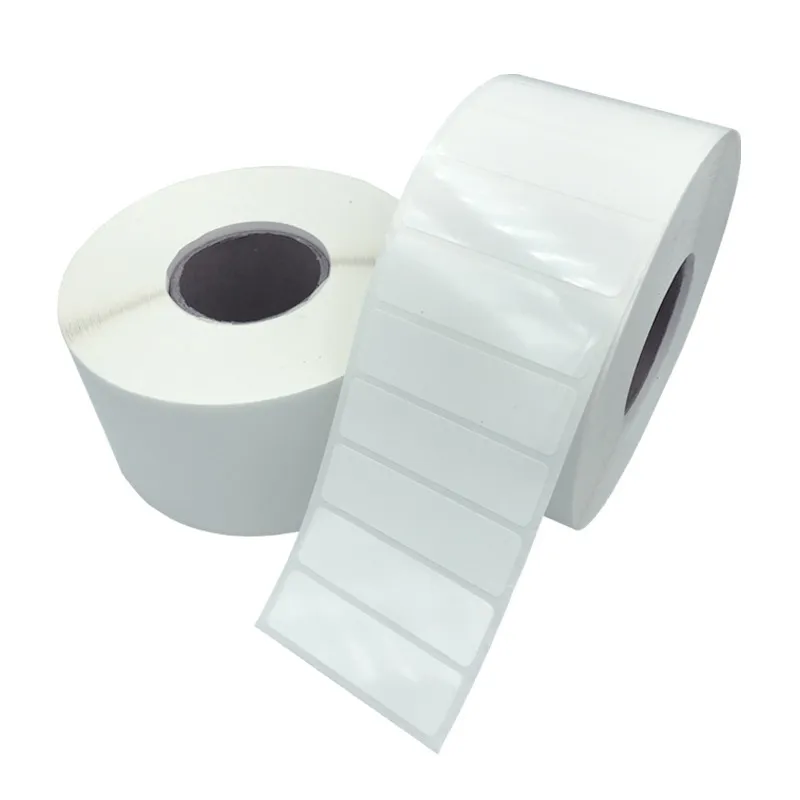In many industrial environments or outdoor conditions, standard labels often fade, peel off, or become damaged by chemical exposure. For manufacturers, maintenance personnel, and small business owners, label failure can result in safety hazards, reduced efficiency, and even customer complaints. This is where Gloss White PET Resistant Solvent Label Material provides a reliable solution

Wh
Think about the electronics industry: labels often go through soldering, board washing, or wave soldering. At temperatures above 260°C, most labels burn, melt, or disappear completely. But Corrosion and remain i
A custome:
“We used to replace labels on engine components every few months. Since switching to high-temperature PET and polyimide labels, everything stays readable, even after exposure to oil and heat.”
This shows how durability translates directly into efficiency and cost savings.
Types of Resistant Labels That Work
1.Gloss White PET Resistant Solvent Label Material
Designed for chemical-heavy environments.
Glossy finish ensures sharp barcodes and clear prints.
Users love it for machine IDs and outdoor equipment.
One factory manager commented: “We clean our machines daily with strong solvents, and these PET labels still look brand new after months of use.”
2.Polyimide High-Temperature Labels
Withstand reflow soldering up to 350°C.
Perfect for printed circuit boards (PCBs).
Electronics engineers often note how these labels survive multiple production cycles without peeling.
3.Aluminum Foil Labels
Resist corrosion and abrasion.
Used widely in aerospace and outdoor asset tracking.
Feedback often highlights their rugged look and “once applied, they don’t come off.”
4.High-Temp Vinyl Labels
Best for UV and outdoor exposure.
Popular with construction and automotive industries.
Common Questions People Ask
Q1: What makes Corrosion and High-Temperature Resistant Labels better than standard labels?
They are engineered with advanced substrates like polyimide, PET, or aluminum foil. Unlike ordinary labels, they stay readable in heat, chemicals, and rough environments.
Q2: Can Gloss White PET Resistant Solvent Label Material handle outdoor weather?
Absolutely. Many small businesses use them for outdoor equipment, and reviews often mention how the print stays clear even after months of rain and sun.
Q3: Are they really worth the investment?
Yes. One small manufacturer said:
“We thought these labels were more expensive at first, but the money we saved from not having to replace labels constantly was huge.”
Q4: Which industries benefit the most?
Electronics, automotive, aerospace, chemical plants, and heavy machinery all rely on these labels. But even small Etsy shop owners who sell custom gear often prefer resistant labels to avoid customer complaints.
Whether it’s tracking circuit boards at 350°C, labeling machines in solvent-heavy factories, or keeping outdoor equipment marked for years, Corrosion and High-Temperature Resistant Labels are a must-have. From Gloss White PET Resistant Solvent Label Material to polyimide and aluminum foil solutions, these labels ensure information stays intact and legible, no matter how extreme the environment.
Real-world users consistently highlight one thing: these labels don’t just last longer—they save time, money, and reputation.
We offer comprehensive technical support, including free professional labeling solutions, advice on label materials and adhesive selection, as well as online/offline assistance from professional software and hardware engineers. Service email: andy@ownlikes.cn. In pre-sales, we leverage our extensive experience in specialty labeling projects to provide clients with the most suitable hardware solutions. Additionally, all our label barcode printers and scanners come with a three-year free warranty, demonstrating our confidence in our products.




